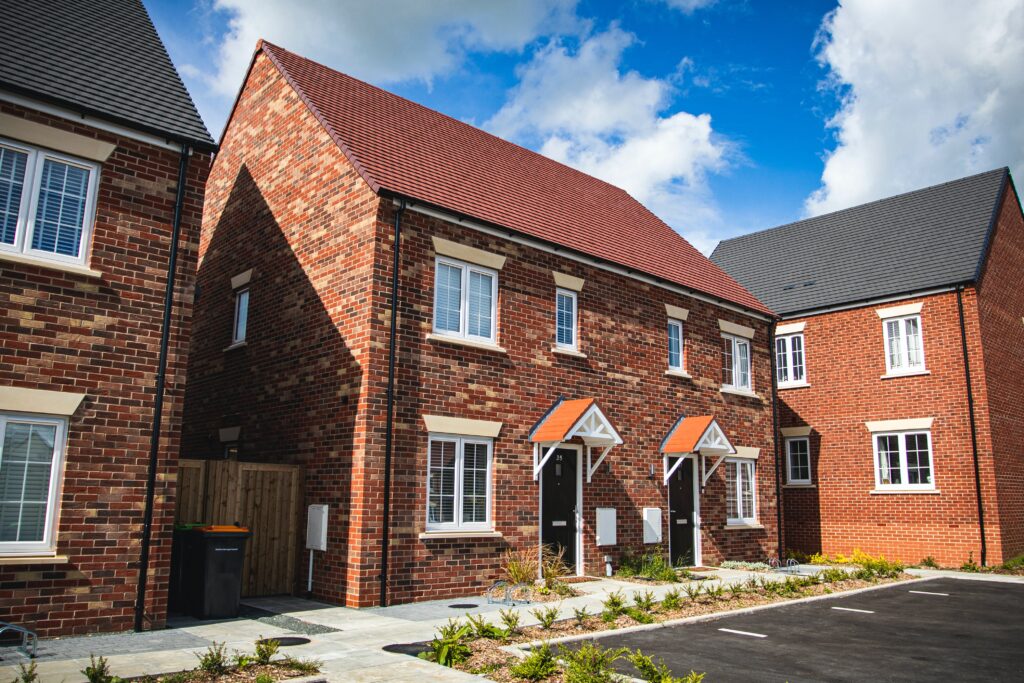
In this blog, Crest Surveyors discuss ground rent and everything that it covers, from what it includes to why and when you should pay. We’ll also highlight where to find any key information you may require to understand the process better and delve into some of the newer legislation surrounding ground rent.
So, what is a ground rent assessment? Ground rent is the rent you have to pay the freeholder or landlord of the property you own a long lease on. If the ground rent is subject to a review and the landlord and tenant are unable to agree on the new ground rent, this is where an assessment comes in. Either party has the right to make an application to RICS DRS to appoint a dispute resolver.
Keep reading to find out more about ground rent and the difference between leasehold and freehold properties.
What Is Ground Rent?
If you own a long lease on a property in England, Wales or Northern Ireland, there is a good chance that you’ll have to pay rent to the freeholder or landlord of the property. This is known as ground rent. In other words, ground rent is a fee charged on leasehold properties as a condition of your lease for the land your home is on. The cost of ground rent will vary depending on the type of property. It can be a fixed cost, which means it will stay the same throughout the term of the lease or it can be escalating which means it will increase by set amounts.
Types of Ground Rent
There are two basic types of ground rent:
- Fixed ground rent – remains the same during the term of the lease period
- Escalating ground rent – will increase during the term of the lease period
Your lease agreement must provide the following details:
- The term of the lease
- Type of ground rent
- The amount you will pay
- If it’s escalating when it will increase and by how much
Why Do You Pay Ground Rent?
If you’ve ever wondered whether you need to pay ground rent, we’ve got you covered. You are required to pay ground rent if you own your home as a leaseholder but you do not own the land on which your property sits. As of 2020, around 4.5 million households in England and Wales own their homes on a leasehold basis. Ground rent is paid annually to the freeholder of the property, which is often an investment firm, which grants you the right as the homeowner to live there on the terms of the lease.
Before you have to pay any kind of ground rent, the freeholder has to formally ask you the following correct procedure:
- Your name
- The period the demand covers
- How much you have to pay
- The name and address of the freeholder
- The name and address of the managing agent if payment is made to them
- The date when payment is due
Remember – The request has to be in writing and include all of the above information, otherwise the demand could be invalid.
What is Included in Ground Rent?
In most cases, the lease will outline exactly what is and isn’t included in the ground rent but they typically include:
- Any maintenance and repair of the structure of the building and any common parts (like guttering)
- The cost of the building’s insurance and maintenance of any communal ground or private accessways

How Much Ground Rent Will You Need To Pay?
The amount of ground rent you’ll need to pay will depend on the type and location of the property however, it is usually affordable. For example, ex-local authority flats will typically cost around £20 to £50 per year whereas private flats range between £150 to £600 per year.
Interestingly, there is also something known as a ‘peppercorn’ rent where historically freeholders would ask for a peppercorn to enforce the terms of the lease and make it legally binding. The term ‘peppercorn rent’ now applies to a very low or nominal amount of ground rent. Anyone who has owned their property for two or more years can also receive a lease extension of 90 years and be entitled to a peppercorn ground rent under the Leasehold Reform, Housing and Urban Development Act 1993. Under this negotiation, the amount of ground rent will be up for discussion.
More often than not, leaseholders pay ground rent every three to six months or once a year.
Can Ground Rent Be Reduced?
Whilst ground rent isn’t usually reduced, you may be able to become a freeholder depending on your particular circumstances. If you live in a flat, at least half of the other leaseholders will need to buy the freehold of the building to make this possible.
If you are instead interested in buying a share of the freehold, it is best to seek legal advice as it is such a complex process.
Difference Between Leasehold and Freehold
Whilst differentiating between these terms can seem complicated, in fact, they both have simple meanings:
Freehold – You own the property and the land it’s built on for as long as you want.
- If you own a freehold property, you own the house and the land it’s built on. There are no leases to consider and you do not have to pay any ground rent or maintenance fees. This is the most common way to buy a house in the UK.
- If you live in a leasehold property but are wanting to buy the freehold, you can ask the landlord to see if they will sell it to you.
Leasehold – You own the property for a set period, but not the land it’s built on.
- Leasehold is where you buy the property but not the land it sits on. The land itself is still owned by the freeholder, who is selling the property for a set period of time.
- Leaseholds usually last between 125 and 999 years however, you may be able to extend how long you own it for.
- After you’ve owned a property for two years, it is your right to request a lease extension of up to 50 years. (Bear in mind that there may be a charge to extend your lease).
The Ground Rent Scandal
In recent years, it’s important to mention that there has been a problem with rising ground rent costs. It would seem that freeholders have realised the potential for an additional revenue stream. This is a particular problem for new builds where increasingly high ground rents are becoming common.
Some ground rent costs are simply already high or clauses in some leasehold contracts set the ground rent to increase (in some cases, double) over a set period. This means that the cost of ground rent can quickly reach the thousands which is a huge problem. Predictions from 2017 suggest that ground rent for some houses could reach as much as £10,000 a year by 2060. These costs impact homeowners significantly as they become trapped in contracts with ground rents spiralling out of control.
On top of this, these homeowners then often struggle to sell their homes because conveyancing solicitors will warn their prospective buyers off buying these leasehold properties. As a result, sellers are often forced to cut the cost of the property to encourage a sale.
According to trade body NAEA Propertymark:
- 57% of leasehold house owners didn’t understand what being a leaseholder meant until they had already purchased the property
- 62% of leasehold homeowners feel like they were mis-sold
- 48% of leasehold homeowners were unaware of the escalating ground rent
Unsurprisingly, all of these frustrations have led to 94% of leasehold homeowners regretting buying a leasehold.
Tackling Rising Ground Rent Costs
In order to tackle these challenges, the government pledged to end unfair leasehold practices in December 2017. This commitment included a proposal to ban the sale of long leases on new build properties and to reduce ground rents on new leases to a peppercorn rent.
Since then, there’s been a number of consultations and the government is still planning to implement changes to the law to make owning or buying a leasehold a better experience. However, this is only limited relief to those already trapped in leases which is why the government and homeowners have increasingly put pressure on developers who sold onerous leases.

RICS Property Valuations at Crest
Here at Crest Surveyors, we offer a visual inspection and detailed analysis of a property by RICS Registered Valuers, followed by a detailed report highlighting the findings. The purpose of this is to ascertain the property’s market value or to determine how joint assets would be shared upon sale of the property.
Our team of highly experienced and qualified surveyors will compile impartial reports to provide you with the most accurate view of your property.
So, get in touch with us today to find out more about our RICS property valuation services or to speak to one of our experts.






